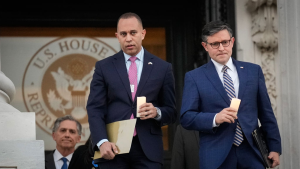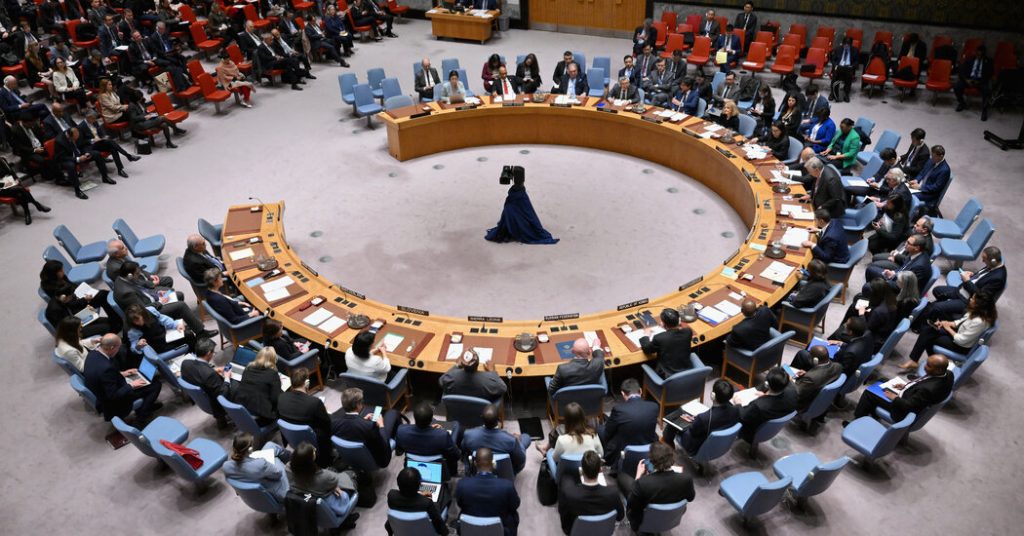The United States used its veto power in the U.N. Security Council to block a Palestinian bid for full membership in the United Nations. The vote was 12 in favor of the resolution, with one opposed (the U.S.) and abstentions from Britain and Switzerland. The Palestinian envoy to the U.N., Riyad Mansour, expressed disappointment, emphasizing the Palestinian people’s right to self-determination in creating an independent state. Israel’s Foreign Minister Israel Katz welcomed the rejection of the proposal, calling it a refusal to reward terrorism.
The Security Council has consistently advocated for a two-state solution to the Palestinian-Israeli conflict, but negotiations between the two sides have failed to yield this outcome. The U.S. State Department reiterated its stance that the most effective path to statehood for Palestinians is through direct negotiations with Israel, rather than seeking recognition via the U.N. The U.S., along with other permanent members of the Council, can veto any resolution, which was the case in this instance when the U.S. blocked the Palestinian membership bid. The resolution sought Security Council endorsement to recommend Palestinian membership to the General Assembly.
Full membership in the U.N. would have been a significant symbolic victory for the Palestinian Authority, granting it voting rights and a rotating seat on the Security Council. However, key issues such as borders and diplomatic recognition would remain unresolved. The Palestinian Authority has been striving for statehood encompassing the West Bank, East Jerusalem, and the Gaza Strip, territories largely under Israeli control or annexation. Progress on Palestinian statehood has been halting since the Oslo Accords in the 1990s, with internal divisions between Hamas and the Palestinian Authority adding complexity.
The tension between Palestinians and Israel has been exacerbated by conflicts and violence, including terrorist attacks by Hamas and Israeli military responses. The war has resulted in casualties on both sides, displacement of Palestinians, and regional tensions involving neighboring countries and Iran. The broader Middle East region has been impacted by the Palestinian-Israeli conflict, highlighting the interconnectedness of regional stability and peace efforts. Despite the challenges and setbacks, the quest for a resolution to the conflict remains a priority for the international community and key stakeholders.
While the U.N. veto blocked the immediate path to Palestinian full membership, the aspiration for statehood remains central in Palestinian aspirations and international diplomacy. The intricacies of the conflict require ongoing dialogue and negotiations to address core issues and move towards a resolution that respects the rights and aspirations of both Palestinians and Israelis. The U.S. stance on the issue reflects its longstanding role as a key player in Middle East peace efforts, emphasizing the importance of direct negotiations and a sustainable peace process. As regional dynamics evolve, the quest for a peaceful resolution to the Palestinian-Israeli conflict remains a critical and complex challenge for the international community.















